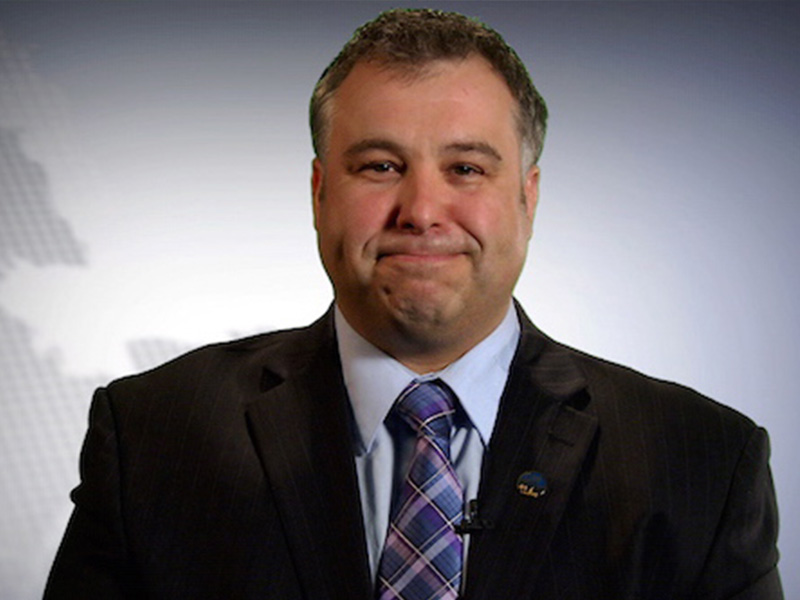The Quebec government has proposed legislation that would strengthen its powers to enforce compulsory attendance by every child from age six to 16 in a legally recognized school or homeschooling program.
On June 9, Education Minister Sébastien Proulx tabled Bill 144, which would amend the Education Act and other provisions, to allow for inspections and investigations of places, including private homes, where it is suspected that instruction that’s not compliant with provincial law is being given, in lieu of the children attending a legal school.
The bill would also introduce stricter regulation of homeschooling, including setting standards.
At a press conference, Proulx said the bill’s aim is “to ensure that each child in Quebec, whatever his status, whatever his religion, can have access to educational services, to educational services that are prescribed already in the law on public education.”
READ: JEWS MOST TARGETED RELIGIOUS GROUP FOR HATE CRIMES
The proposed law is aimed at educational establishments, usually religious, that are operating outside the law.
For more than a decade, successive governments have pressured certain chassidic and other haredi communities to make their schools conform to the law – to obtain permits and have qualified people teach the mandatory curriculum. The government attests that boys of high school age, in particular, are receiving inadequate secular education to concentrate on religious studies.
Most schools have made progress, but there are exceptions, as was illustrated dramatically a year ago, when police intervened after youth protection officers, who were concerned about the students’ welfare, were refused entry into a chassidic school on Park Avenue in Montreal.
Proulx said it is believed that there are illegal schools that have yet to come to light and this bill will give the government the tools it needs to act. He emphasized that he is not referring to those schools that are making efforts to conform to the law, with which his department has “excellent collaboration.”
A couple of years ago, some communities reached an agreement with the education ministry and the English Montreal School Board (EMSB) to have their children schooled by their parents, while they continue to attend community schools for traditional instruction.
The numbers have risen dramatically: this year, 705 homeschooled chassidic students were registered with the EMSB. According to Proulx, this arrangement is working out very well.
The bill would give the government a greater ability to identify children not enrolled in a legal school or homeschool program, including accessing personal data from the Régie de l’assurance maladie du Québec.
It would allow a person designated by the minister to “enter, at any reasonable time, any place where the person has reason to believe children required to attend school are receiving training or instruction not governed by this Act or the Act respecting private education and require the persons present to provide their names and contact information and the names and contact information of the children and their parents.”
A private dwelling could also be inspected with the occupant’s authorization, or, failing that, a search warrant.
The bill would establish the obligations of both parents and school boards. It would become an offence to “act in any manner that compromises” a child’s attendance, under penalty of fines of up to $30,000 for a first offence.
School boards would no longer simply monitor homeschooled children, but intervene, if necessary, on the government’s behalf. They would have to “take any action with the child and his parents that is specified by the Minister to ascertain and, if applicable, regularize the child’s situation,” and parents would be obliged to provide the board with “any information it requires on their child’s situation within a reasonable time.”
If the parents don’t comply, the school board will be required to make a report to the youth protection department, which would also have new powers of intervention in suspected illegal educational establishments.
Under this bill, homeschooling standards would be determined no later than June 1, 2018, and the minister would produce a guide on good homeschooling practices by July 1, 2019. An advisory panel to the government on homeschooling would be in place by July 1, 2018.
The Quebec English School Boards Association (QESBA), of which the EMSB is a member, approves of the bill’s intent of ensuring that all Quebecers have access to appropriate education.
“Given the success of every student is our primary mission, we agree there must be a balance between religion, the rights of the child and the role of education,” stated QESBA president Jennifer Maccarone.
“We look forward to analyzing the bill in detail and to presenting our formal position during the parliamentary commission this fall.”







